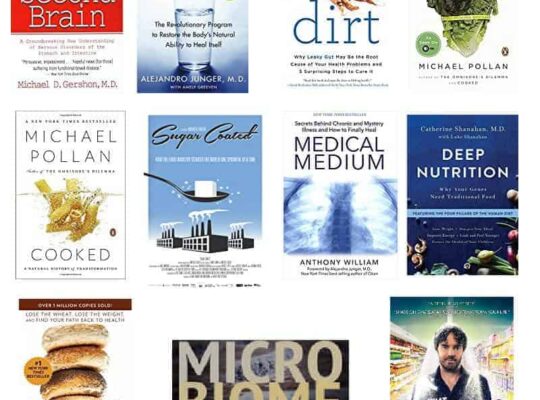Autoimmune disease impacts over 8% of adults and that number is growing every year. This rise is most likely due to changes in our environment, including what we eat. Let’s dive into what autoimmunity is, how food and lifestyle can cause it, and also how food and lifestyle can heal various autoimmune conditions.
What is autoimmunity and autoimmune disease?
Autoimmunity is when the body starts to attack itself. The body has a robust immune system meant to fight off foreign invaders like bacteria, viruses, and parasites. However, that immune system can get its wires crossed. A common way we see that in America is increased allergies due to a reduced prevalence of worms and parasites.
But a more severe outcome is autoimmunity when the immune system mounts an attack against self.
Autoimmunity is the act of the body attacking itself.
Autoimmune disease is a disease that results from autoimmunity.
These diseases are most common when autoimmunity attacks an organ or tissue to the point where that organ or tissue is being destroyed.
From the start of autoimmunity to the point of diagnosable disease can take up to 10 years!
That means that your body can be struggling and attacking its own tissues for years, causing slightly worsening symptoms, before it meets the criteria for the standard treatment of care in most hospital systems.
Many patients experience cycling from doctor to doctor being told that nothing is wrong, the labs are fine, or this is all in their head during this time period. This can be incredibly challenging to go through, especially when this is the most critical time to intervene and delay disease progression.
What are common forms of autoimmunity and autoimmune disease?
The prevalence of these diseases is very high, so chances are you or someone you know and love is impacted.
Common autoimmune conditions and the tissues and organs they impact:
- Thyroiditis (Hashimoto’s or Graves): against the thyroid
- Psoriasis: skin cells
- Psoriatic arthritis: Joints
- Rheumatoid arthritis: joints
- Type 1 Diabetes: Pancrease
- Multiple Sclerosis: Nervous system and myelin sheath on nerves
- Ulcerative Colitis: Gut
- Celiac Disease: Gut
- Lupus (SLE): Multiple tissues including joints, skin, kidneys, blood, brain, heart, lungs
- Myasthenia Gravis: Skeletal Muscles
- Systematic sclerosis: Gut, lungs, heart, kidneys
- Sjorgen’s Syndrome: moisture glands in eyes, mouth, and more
- Crohn’s: Gut
What’s my risk?
- 1:9 women and 1:12 adults have an autoimmune disease
- incidence is increasing 19% per year, so those numbers will likely rise
- You are at higher risk if you have family history of autoimmune disease
- One autoimmune disease greatly increases the risk of acquiring another autoimmune disease.
How does this happen
In short, autoimmunity happens when cells that are supposed to recognize foreign agents are triggered (they are told that a foreign agent is present) while they also receive a danger signal. So the immune cells is recognizing a potential threat and are told what the threat is.
We have a lot of cells in our bodies that are not self, in fact, we are mostly microbes! This is a great video on how the body differentiates self. A healthy part of the immune system is understanding self vs. foreign friend vs foreign enemy.
This is done by the combination of recognizing self vs foreign and safe vs danger.
This can happen in two ways
- Bystander Effect: Where extra danger signal is lingering and activating the wrong cells to mount an immune response
- Molecular Mimicry: when the identifiers for foreign agents and self are so close that the immune response going after the foreign agent can’t tell the difference between it and a very similar-looking self.
What contributes to risk?
- Genetic predisposition (having specific genes that make it more likely your self-protein will be misidentified as a foreign agent)
- Poor gut health can reduce our ability to send tolerance signals and turn off autoimmune reactions
- Increased gut permeability or leaky gut can be associated with increased autoimmune reactions
- Dietary habits
- Environmental surroundings
- Pollution
- Highly infectious habitat that is putting the body into constant inflammation with consistent “danger signals” to trigger the immune response
- Stress
What helps reduce risk?
- A balanced and healthy gut
- Healthy food
- Reducing or managing stress
- Managing and addressing grief
- Vitamin A
- Vitamin D
- Omega 3 fatty acids
- Turmeric
- A balanced and healthy microbiome
Working with a functional medicine practitioner or nutritionist can help you create a plan that works for your individual needs and risk to reduce your chance of developing an autoimmune disease and to reduce symptoms and progression in the early stages of autoimmunity.








